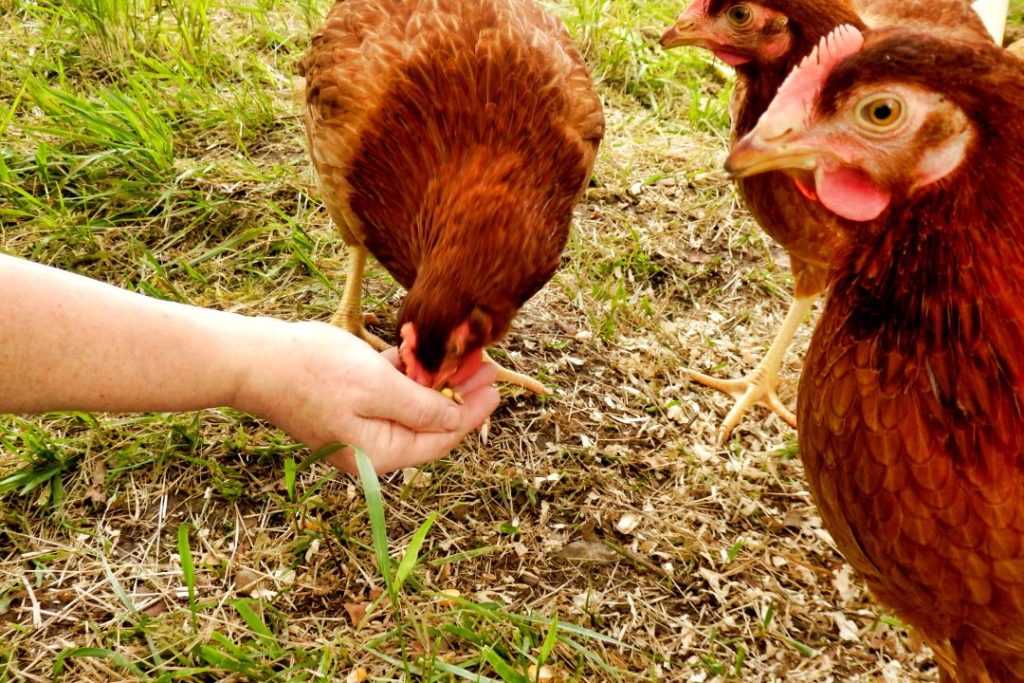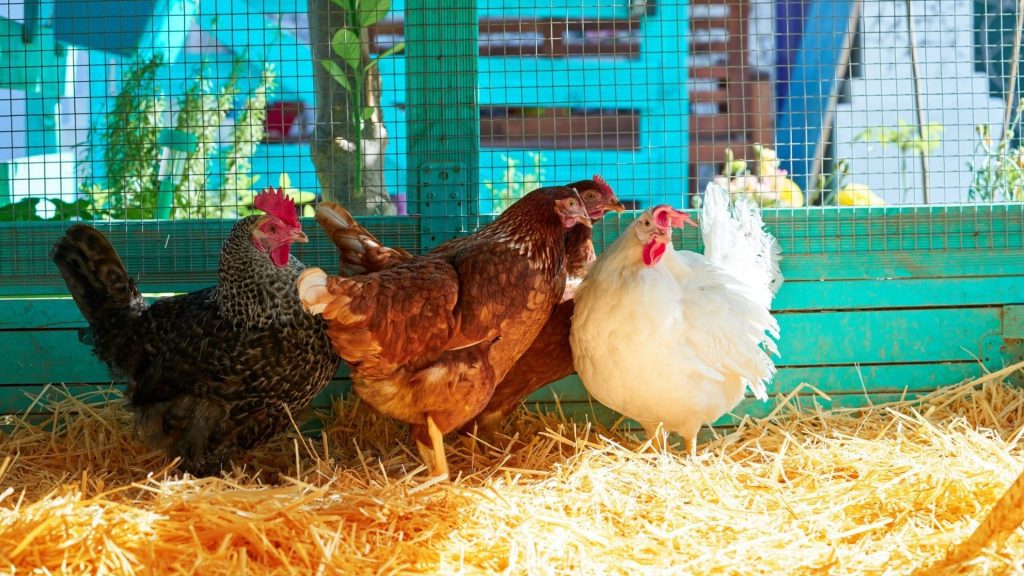If your chicken has a broken beak, you might feel worried about what to do next. Treating a broken beak is important for your chicken’s health and comfort. The injury severity can vary, and you must follow a specific approach in each situation.
Pecking order disputes, accidental trauma, poor coop conditions, nutritional deficiencies, and inappropriate pecking surfaces can cause your chicken’s beak injuries. Once your chicken’s beak injury happens, provide them home treatment or medical treatment.
However, this article will explain how to treat a bird with a broken beak and many more. So, let’s start going through this article in detail!
How Chickens Use Their Beaks?
Chickens can use their beak in the following ways.
Foraging for Food
Chickens primarily use their beaks for foraging. They peck at the ground to find seeds, insects, and other edible items. This behavior is instinctual and crucial for their survival.
Drinking Water
When chickens drink, they use their beaks to scoop up water. They tilt their heads back to swallow, a unique and effective way of staying hydrated.
Preening Feathers
Chickens use their beaks to keep their feathers clean and in good condition. Preening helps them remove dirt parasites and align their feathers properly.
Communication
Chickens often use their beaks to communicate with each other. Gentle pecking can be a sign of affection or a way to establish social order.
Nest Building
Hens use their beaks to arrange their nests. They gather materials and meticulously place them, ensuring a comfortable space for laying eggs.
What Causes Your Chicken’s Beak Injuries?
You can generate a more comfortable and safer environment for your feathered friends by knowing what causes your chicken’s beak injuries. Remember, a healthy chicken with a healthy beak is a happy chicken!
Pecking Order Disputes
Disputes in the pecking order can lead to beak injuries. Chickens establish a social hierarchy, and sometimes, this can result in aggressive pecking.
Accidental Trauma
Accidental trauma, like getting the beak caught in fencing or fighting with predators, can cause injuries. It’s important to maintain a safe environment to prevent such accidents.
Nutritional Deficiencies
Lack of essential nutrients, especially calcium, can weaken a chicken’s beak. This makes it more prone to breaking or cracking.
Poor Coop Conditions
Overcrowding or poorly maintained coops can lead to stress and aggression, causing beak injuries. Ensuring enough space and a clean environment is crucial.
Inappropriate Pecking Surfaces
Chickens needing appropriate materials to peck might injure their beaks on hard or unsuitable surfaces. Providing proper pecking materials can help prevent this.
How Do You Recognize an Abnormal or Injured Chicken Beak?
To recognize your chicken’s injured or abnormal chicken beak, go through the details below:
Visible Damage
If you notice cracks, splits, or missing parts of the beak, it’s a sign of injury. These visible damages can hinder your chicken’s eating ability and should be addressed immediately.
Changes in Eating Habits
A chicken with beak problems often struggles to eat. Watch for changes like decreased appetite or difficulty picking up food. These are telltale signs that something’s wrong with their beak.
Abnormal Growth
A beak that’s growing oddly, either too long or misshapen, indicates a problem. Abnormal growth can affect the chicken’s ability to feed itself properly and maintain general beak health.
Behavioral Changes
Injured chickens might avoid their usual activities. Look for signs of discomfort or pain, such as reluctance to peck or eat, which can indicate beak issues.
How Do You Treat Your Chicken’s Bleeding Beak?
To treat your chicken’s bleeding beak, go through the details below:
Immediate Gentle Care
When you see a bleeding beak, act calmly and gently. Restraining your chicken carefully can prevent further harm and stress, essential for proper treatment.
Application of Styptic Powder
Applying styptic powder can quickly stop the bleeding. It’s a handy first aid measure for minor beak injuries, but remember, it’s not a substitute for veterinary care in severe cases.
Professional Veterinary Care
Serious injuries require a vet’s attention. They are equipped to handle how to treat a broken beak effectively and can provide the necessary care and advice for your chicken’s recovery.
Supportive Aftercare
Post-treatment, your chicken needs a comfortable environment to recover. Make sure it has easy access to food and water, and keep an eye on its healing progress.
Understanding Beak Growth
Many chicken owners wonder, ‘Will a broken bird beak grow back?’ The answer varies. Minor injuries often heal, but severe breaks might not fully recover. The beak’s ability to regrow depends on the extent of the damage.
Preventing Future Injuries
Ensure your chicken’s living space is safe to prevent future beak injuries. Regular checks for potential hazards can go a long way in keeping your chickens healthy.
Medical Treatment for Your Chicken’s Beak Injury
Treating your chicken’s beak injury through medical treatment or at home requires careful attention and care. For your chicken’s beak injury, the necessary medical treatments are:
Consulting a Veterinarian
You should consult a veterinarian immediately if your chicken faces a beak injury. They can properly assess the damage and advise on the best action.
Pain Management and Antibiotics
A vet may prescribe pain relief to ease your chicken’s discomfort. If there’s a risk of infection, antibiotics are often necessary.
Beak Repair Procedures
For severe cases, a vet might perform a beak repair. This can involve bonding broken pieces or even reconstructing parts of the beak.
Nutritional Adjustments
The vet may recommend changes in diet to ensure your chicken gets adequate nutrition while healing, especially if the beak’s function is compromised.
Monitoring for Complications
Post-visit, monitoring your chicken for any signs of infection or behavioral changes is crucial. Regular check-ups might be needed to ensure proper healing.
Home Treatment for Your Chicken’s Beak Injury
Proper care can significantly impact your chicken’s recovery and quality of life. A healthy beak is essential for your chicken’s overall well-being.
Isolating the Injured Chicken
Firstly, isolate your chicken to prevent further stress or injury from flock mates. This gives them a safe space to recover.
Gentle Cleaning
If the beak is broken but not severely, gently clean the area with saline solution. This helps prevent infection and assess the extent of damage.
Soft Food and Water Accessibility
Offer soft, easy-to-eat foods and ensure water is easily accessible. This helps the chicken eat without causing further damage to the beak.
Applying a Protective Coating
For minor cracks, you can apply a pet-safe, waterproof sealant to protect the area. Ensure it’s non-toxic and suitable for birds.
Observation and Care
Keep closely monitoring your chicken’s behavior, eating, and drinking habits. Promptly address any changes or worsening of the condition.
Understanding Beak Growth
Many wonder, “Will a broken beak grow back?” The answer depends on the injury extent. Minor damages can heal, but severe cases may need veterinary intervention for repair.
Final Note
To wrap up, when figuring out how to treat a bird with a broken beak, remember it’s all about gentle care and patience. No matter if the break is small or big, your chicken’s health is what matters most.
However, be kind, give them the right food, and keep their space calm to help them heal. But the most crucial thing is to get a vet’s advice, especially for severe breaks. They’re the ones who can give the best treatment and help your flock get better quickly.
Frequently Asked Questions
How to treat a broken beak in birds at home?
For home treatment of a broken beak, gently clean the injury with saline, provide soft food, ensure water is accessible, and keep the bird stress-free. Seek veterinary care for severe cases.
Will a broken bird’s beak grow back naturally?
Minor beak injuries can heal and may regrow over time. However, full regrowth is not guaranteed for severe breaks, and professional veterinary care may be needed.
What happens if a bird’s beak breaks, and how should I respond?
If a bird’s beak breaks, isolate it to prevent further stress, clean the beak gently, and provide soft food. Consult a veterinarian for severe injuries.
What are the indications of a broken beak in birds?
Indications include visible cracks, difficulty eating, bleeding, or a change in beak shape. Behavioral changes may also occur.
How do veterinarians treat a bird with a broken beak?
Veterinarians treat a broken beak with pain relief, antibiotics, and, in severe cases, surgical procedures for repair or reconstruction.



